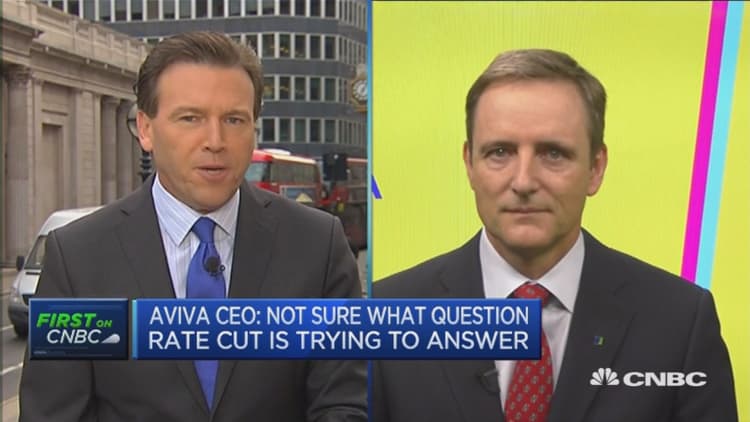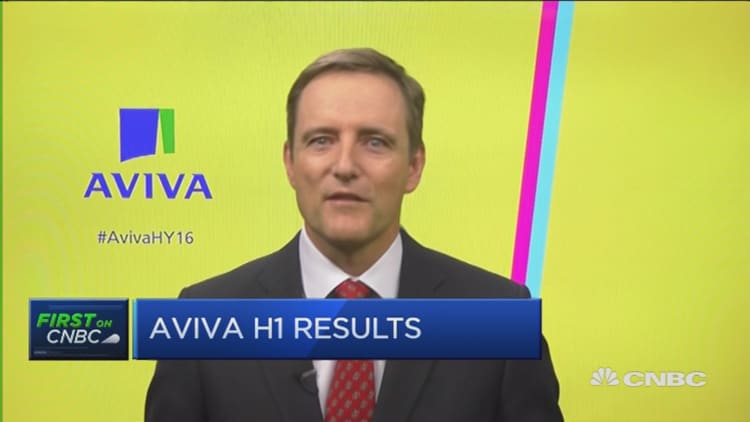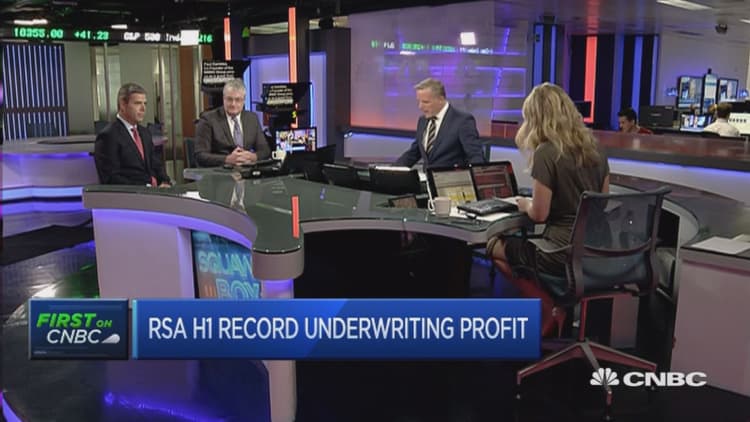


The Bank of England (BoE) might have cut its benchmark rate to cushion a likely post-Brexit downturn, but there is unease in some quarters of the U.K. business industry.
"I'm not sure what question the rate cut is trying to answer," Mark Wilson, the CEO of Aviva told CNBC Thursday.
The U.K. based firm - which provides around 31 million customers worldwide with insurance and investment products - is part of a sector that feels the pain when interest rates are low and the search for high-yielding assets grows ever harder.
Wilson claims that Aviva isn't impacted "too much" by a further rate cut and claims that the insurer is a "pretty good wet weather car" when times are challenging. He believes that it's the government that should be stepping in to support the U.K. economy rather than the central bank.
'Better way to do stimulus'
"I'd much rather see the government look at how can it stimulate infrastructure," he said. "A wider package from the government, simulating things like infrastructure and other things that will get real growth in the economy," he later added.
The Bank of England cut its benchmark rate for the first time in more the seven years on Thursday. A 25 basis point reduction was announced, as expected, but Wilson is not alone with his views on fiscal stimulus.
Adam Posen, president of the Peterson Institute for International Economics, is a fan of fiscal planning. Highlighting the recent package announced by Japanese Prime Minister Shinzo Abe, he called it a "better way to do stimulus."
"Abe's stimulus is a lesson for the world," the headline on his Financial Times opinion piece on Wednesday said.
Japan's cabinet approved 13.5 trillion yen ($132.04 billion) in fiscal measures this week, with cash payouts to low-income earners and infrastructure spending.
'Sledgehammer' needed?
Meanwhile, a U.K. think tank on Wednesday called for a "sledgehammer" from BoE policymakers, as it warned that there was a 50-50 chance of a U.K. recession in the next 18 months. This came on the same day as a Purchasing Managers' Index pointed to a slowdown in the U.K. economy.
Aviva's Wilson said the company was seeing some weaker confidence coming through in the U.K. Scott Egan, the chief financial officer at RSA Insurance, told CNBC Thursday that it was far too early to tell if the U.K. was heading for a recession.
"(Insurance firms) must concentrate on driving profitability from your underwriting performance," he said.


